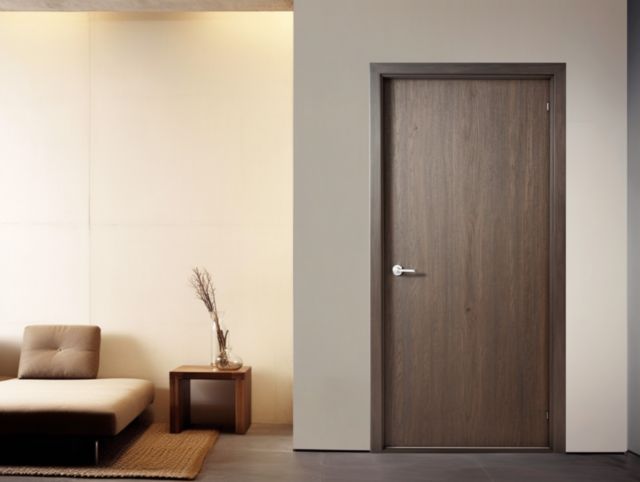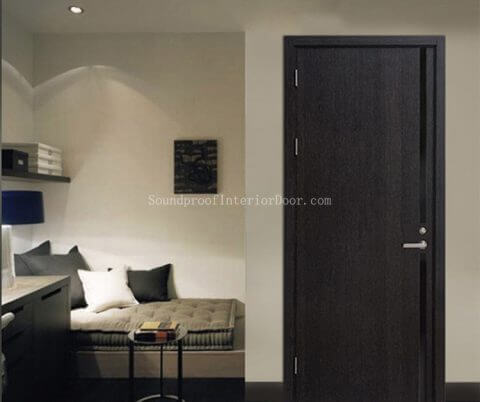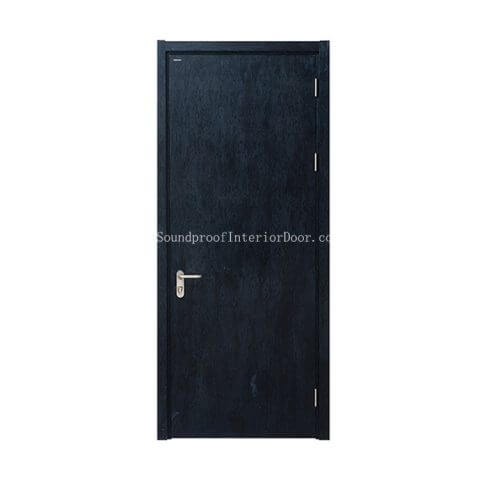Table of Contents
I. Introduction
II. Understanding Sound Isolation Doors
III. How Sound Isolation Doors Work
IV. Types of Sound Isolation Doors
V. Additional Soundproofing Measures
VI. Conclusion
I. Introduction
Achieving peace and quiet in our bedrooms is key for quality restful sleep and overall well-being, but external noises can often disrupt this peace and make relaxation challenging. Soundproofing techniques play a key role here, with sound isolation door being one key tool used effectively as soundproofing barrier.
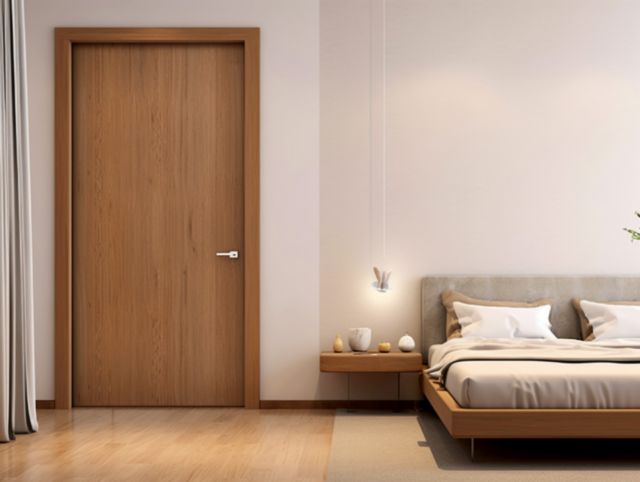
II. Understanding Sound Isolation Doors
Sound isolation doors (also referred to as soundproof doors) are specifically engineered doors designed to reduce sound transmission between spaces. While regular doors allow sound waves to pass easily through, sound isolating door incorporates features and components designed to amplify their soundproofing abilities.
One key characteristic of isolation doors is their ability to form an airtight seal when closed, preventing sound waves from escaping or entering the room and significantly reducing noise transfer. Furthermore, soundproofing properties of sound isolation doors are enhanced further thanks to dense materials that absorb or block sound waves – further reinforcing their soundproofing abilities.
Use of sound isolated door in bedrooms offers multiple benefits. First and foremost, sound isolate door creates a barrier against external noise sources like traffic noise or construction noise in order to promote peaceful sleeping environments and ensure restful slumber.
Sound isolate doors also help block sounds emanating from within a bedroom from traveling throughout the house, which is especially helpful if you work from home or share living spaces with others. They increase privacy while minimising disruption caused by activities in the bedroom such as watching television or listening to music.
Sound isolated doors not only serve a soundproofing function; they also bring many other advantages. Energy-wise, sound isolation doors help lower heating and cooling bills while helping maintain a comfortable temperature in the bedroom. In terms of security and fire safety, many sound isolation doors have been engineered to meet industry standards for fire resistance and durability.
This section will discuss in more depth what makes door sound isolation effective at soundproofing bedrooms, as well as discuss different types of sound isolation doors available on the market and how to select the one most suited to your individual needs.
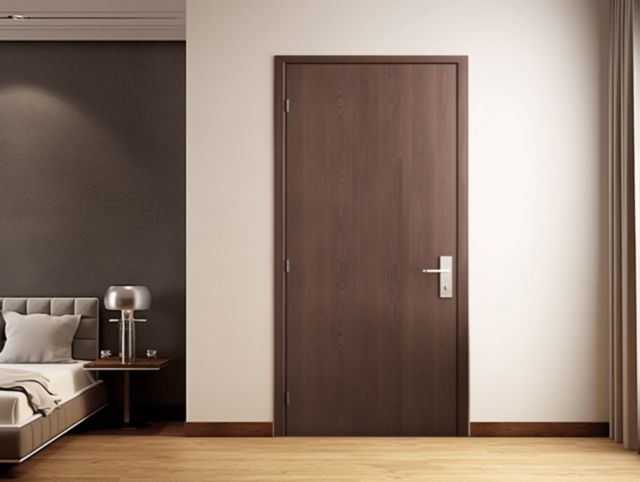
III. How Sound Isolation Doors Work
Sound isolation doors work by blocking or absorbing sound waves to reduce noise transmission between rooms. Their effectiveness depends on combining various factors such as materials, construction methods and sealing techniques into one solution.
The slience doors work by employing dense and heavy materials like solid wood or steel that absorb sound waves to stop them from passing through the door, thus blocking noise transmission. Their density helps dampen vibrations and decrease overall sound energy penetration into rooms.
Construction plays a key role in soundproofing doors. These domestic soundproof doors feature multiple layers or panels designed to block out sound. Different materials may serve a specific function in sound absorption and insulation; for instance, some sound isolation doors feature cores made of acoustic foam insulation material which absorbs and dissipates sound energy efficiently.
Sealing mechanisms of industrial soundproof doors are also an integral component. A properly sealed door prevents noise leakage through gaps and cracks; weatherstripping or gaskets can often be used to create an airtight seal around the door frame for soundproofing purposes while simultaneously increasing energy efficiency by decreasing drafts and heat loss.
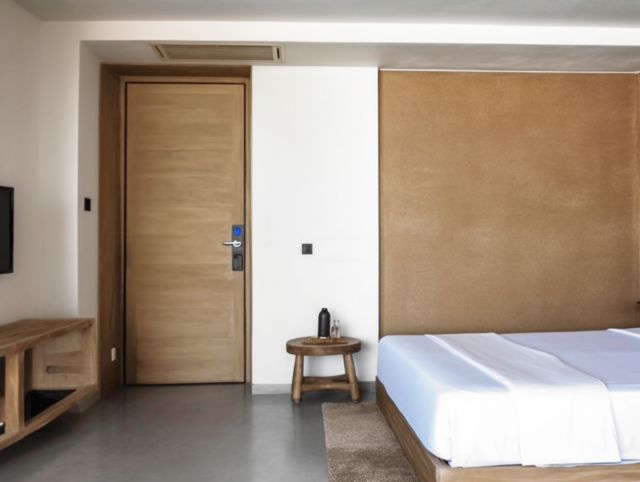
IV. Types of Sound Isolation Doors
When it comes to sound isolation doors, there are multiple varieties on the market, each offering their own specific benefits and applications. Here are a few popular ones:
- Wooden Sound Isolation Doors: These soundproofing doors are constructed of solid or engineered wood products, with automatic lifting sealing strip at the bottom. Their natural aesthetic makes them an aesthetically pleasing option for soundproofing bedrooms while their excellent sound absorption properties help make them ideal for customizable designs.
- Steel Sound Isolation Doors: Steel doors offer unsurpassed soundproofing capabilities and are commonly found in industrial or commercial settings where noise reduction is key. Furthermore, steel sound isolation doors come fire-rated for additional safety and security measures.
- Fireproof Sound Isolation Doors: These soundproofing doors are specifically constructed to comply with fire safety regulations while simultaneously offering soundproofing benefits. Constructed using fire-resistant fire door isolation materials, these doors are often found in hotels or multi-story buildings where fire protection is an imperative.
Selecting an ideal acoustic isolation door for your bedroom depends on a number of factors, including noise reduction needs and aesthetic preferences; additional specifications, such as fire resistance or other specifics might also come into play; consulting a soundproofing specialist or professional is always recommended when making this important decision.
In the next part of this article, we will explore additional soundproofing measures that can be combined with sound isolation doors to further increase noise reduction capabilities in bedrooms.
V. Additional Soundproofing Measures
How to isolate door? Sound isolation doors play an essential part in door noise isolation in bedrooms, but additional measures can help increase their effectiveness and create an even quieter atmosphere. Here are a few additional soundproofing techniques and door soundproofing products:
Acoustic Insulation
Installing acoustic insulation door insulator can significantly decrease noise transmission between walls, ceilings and floors. Materials like mineral wool or fiberglass absorb soundwaves before they travel through the structure of a room.
Window Treatments
Windows are often an entryway for noise infiltration. Adding soundproof curtains, blinds or window films can help isolate door sound by blocking external noise and provide sound insulation benefits. Look for soundproof window treatments designed specifically to absorb or reflect sound waves for improved insulation results.
Furniture Placement
When placed strategically, furniture can help absorb and diffuse sound waves to decrease echo and reverberation in a room. Try placing bookshelves, upholstered furniture, or acoustic panels along walls as a means of absorbing noise reflection and minimising reflection of sound waves back onto itself.
Seal Gaps and Cracks
Assess your room for gaps or cracks that allow sound to leak in, sealing them using weatherstripping door soundproofing seal, caulk, or an acoustic sealant to create an effective noise barrier and minimize sound infiltration.
Remember, pairing additional soundproofing measures with sound isolation doors can significantly enhance overall noise reduction in your bedroom.
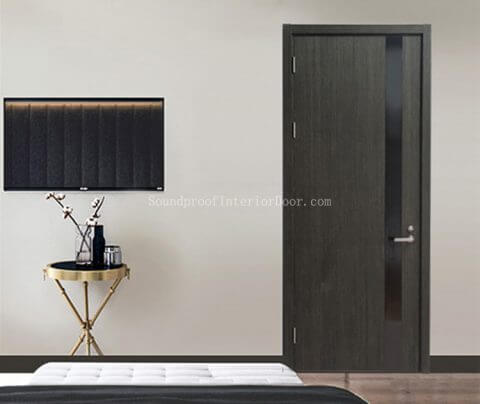
Soundproof Interior Doors
Soundproof Interior Doors Solid Core Interior Doors Soundproof Interior Double Doors
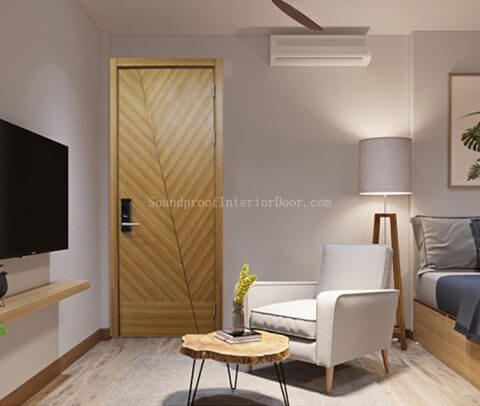
Acoustic Sound Proof Doors
Acoustic Sound Proof Doors Thick Sound Proof Door Material Heavy Soundproof Door
VI. Conclusion
To conclude, sound isolation doors play an essential part in creating an ambient and tranquil environment in bedrooms. By understanding their principles and effectiveness, you can make an informed choice when selecting the type of door most suited to your requirements.
Noise isolation doors work by blocking or absorbing sound waves with dense materials, multi-layered construction, and effective sealing mechanisms. We introduced various types of sound dampening doors, such as wooden, steel and fireproof ones; emphasizing the importance of selecting one based on your individual requirements.
To complement the soundproofing capabilities of sound isolation doors, we addressed additional sound isolation for doors measures like acoustic insulation, window treatments and furniture arrangement – techniques which work together with sound isolation doors to create an even quieter and more relaxing bedroom space.
Implementing soundproofing techniques such as investing in high-quality noise isolation door will create a serene living environment free from external disturbances and disruption. Experience restful sleep and rejuvenating downtime in your soundproofed bedroom.
Thank you for reading our blog post on the role of sound isolation doors in soundproofing bedrooms. Stay tuned for more industry insights and advice to create an ideal living environment.
